Here are the most recent cumulative updates for SQL Server 2014, 2012, 2008 R2 and 2008 (as of June 27, 2014)
SQL Server 2014 RTM CU2 (12.0.2370) released on June 27, 2014
Microsoft has now released the second cumulative update for SQL Server 2014 RTM, which has 48 hotfixes by my count from the KB article. These include most of the hotfixes from SQL Server 2012 through SP1 CU10. If you are getting ready to deploy a new SQL Server 2014 instance, I really think you want to be on SQL Server 2014 RTM CU2.
SQL Server 2012 RTM CU11 (11.0.2424) released on December 16, 2013 (this is the last one for the RTM branch)
SQL Server 2012 SP1 CU10 (11.0.3431) released on May 19, 2014 (On SQL Server 2012, this is where you want to be, in my opinion)
SQL Server 2012 SP2 RTM (11.0.5058) released on June 19, 2014 (I would wait for SQL Server 2012 SP2 CU1 before you move to this branch)
If you are on SQL Server 2012, only Service Pack 1 and Service Pack 2 are still officially a “supported service pack”. The RTM branch is no longer a “supported service pack”.
SQL Server 2008 R2 SP2 CU12 (10.50.4305) released on April 21, 2014
If you are on SQL Server 2008 R2, only Service Pack 2 is still a “supported service pack”. All other branches are retired.
SQL Server 2008 SP3 CU17 (10.0.5861) released on May 19, 2014 (this is the final CU for SQL Server 2008 SP3)
If you are on SQL Server 2008, only Service Pack 3 is still a “supported service pack”. All other branches are retired.
For a number of months, I was very curious about whether there would be a SQL Server 2008 SP4 and/or a SQL Server 2008 R2 SP3 before both SQL Server 2008 and 2008 R2 fall out of mainstream support on July 8, 2014? Especially for people who don’t believe in deploying cumulative updates, the SQL Server 2008 SP3 RTM build and the SQL Server 2008 R2 SP2 RTM build are going to be quite ancient (and missing a lot of very important fixes) by July 8, 2014.
June 2, 2014 Update: On May 29, Microsoft announced that there will be final Service Packs for both SQL Server 2008 and SQL Server 2008 R2, that will be released some time after July 8, 2014. This is very welcome news that I really appreciate!
So, to recap, if you are getting ready to deploy SQL Server 2014, you should install SQL Server 2014 RTM CU2. If you are on SQL Server 2012, you should be on the SP1 branch by now (even though SP2 is now available). If you are on SQL Server 2008 R2, you should be on the SP2 branch, since SP1 and RTM are retired. If you are on SQL Server 2008, you should be on the SP3 branch, since all previous branches are retired. All of SQL Server 2005 is out of mainstream support, but if you are still on SQL Server 2005, you should be on SP4.

4 thoughts on “Most Recent Cumulative Updates for SQL Server 2008-2014”
Glenn, you said at SQL Saturday #297 that Microsoft won’t be releasing any more SQL Server service packs – just CUs. Are we not getting clear information from them on this?
Microsoft has not officially announced that there will not be any more Service Packs for SQL Server (after SQL Server 2012 SP2), but they have been dropping some pretty big hints that they are going to go in that direction. Read this blog post for example:
http://blogs.msdn.com/b/sqlreleaseservices/archive/2014/02/13/update-on-the-service-pack-plans-for-sql-server.aspx
Hi Glenn
Just wanted to let you know, in case you have not come across that issue, that the CU13 for SQL 2008R2 (which, as Microsoft confirmed, is supposed to be the last CU for this branch) has a bug that essentially subverts RCSI isolation level behavior by making it use locks instead of reading version store.
Here is the link to the relevant Connect item I submitted:
http://connect.microsoft.com/SQLServer/feedback/details/914650/sql2008-r2-sp2-cu12-undermines-rcsi-by-making-select-statements-use-locks-instead-of-reading-row-versions#
As far as I can tell, the latest-known “good” CU in 2008R2 branch, i.e. the CU without this bug, is CU10.
I actually meant “2008R2 SP2” branch (rather than “2008R2” branch), sorry for the typo.